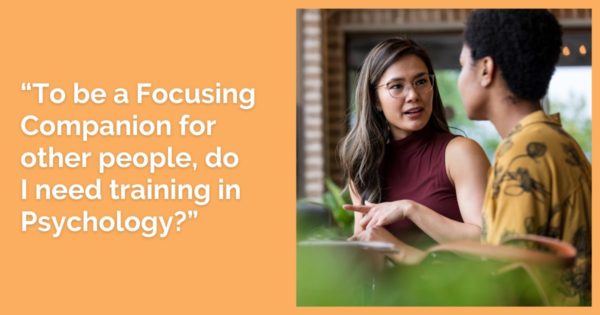“When I shared with my coach that I was working to accept the disease, she suggested that I might be careful not to accept illnesses, unwanted situations, and people…”
A Reader writes:
After reading The Radical Acceptance of Everything, taking Focusing classes, and practicing for about 5 years now, I sometimes feel that I don’t have a good grip on discerning what to accept — conceptually, bodily, mentally, emotionally.
Recently, a doctor diagnosed me with a certain disease. When I shared with my coach that I was working to accept the disease, she suggested that I might be careful not to accept illnesses, unwanted situations and people. For her, when there is an unwanted guest in her house, she prefers it to leave ASAP. “Let it come, let it go,” she says.
I do feel that it might be beneficial for me to at least acknowledge that there is an imbalanced condition (e.g., illness) so that I can address it.
Regarding my inner world, a familiar sadness often visits. Up to now, I’ve been saying hello, listening, and extending empathy for its struggle. It feels harsh for something in me to ask this guest to leave. But might it sometimes be the right thing?
Dear Reader:
Unfortunately, the word “acceptance” has a double meaning that can put us right in the middle of dilemmas such as the one you have with your illness.
One meaning implies a kind of resignation, as in: “I can do nothing about this so I accept my fate.” This meaning refers to outer world circumstances and the behavior of other people. And illness.
The other meaning, the one I’m using in my book The Radical Acceptance of Everything, refers to accepting our own emotional states as they are, turning toward them, forming a relationship with them…and understanding that when they are given this type of acceptance they often — very often — change into something else.
I wouldn’t have suggested that you accept your illness, though I’m not saying you shouldn’t, either. (I don’t have an opinion on that one way or the other.) What I do know is that I would invite you to turn toward your feelings ABOUT your illness, and give them some space and accompaniment inside yourself.
Countless times in my work I have seen people locked in a fruitless “emotion war” inside themselves, trying not to feel what they feel, trying to decide if their feelings are acceptable or reasonable, trying to replace their feelings with other feelings. I have never known this to be successful. We cannot change what we feel through decision or argument.
Our feelings are ready to change…when we turn toward them. If your familiar sadness has not changed despite you offering it empathy, that brings curiosity in me. I wonder if there is something underneath, something that is not sad, but something else.
You might let go of the word “sad” for a while and just sense freshly. There is something there waiting to be contacted and heard; let’s open up to what it might be.






